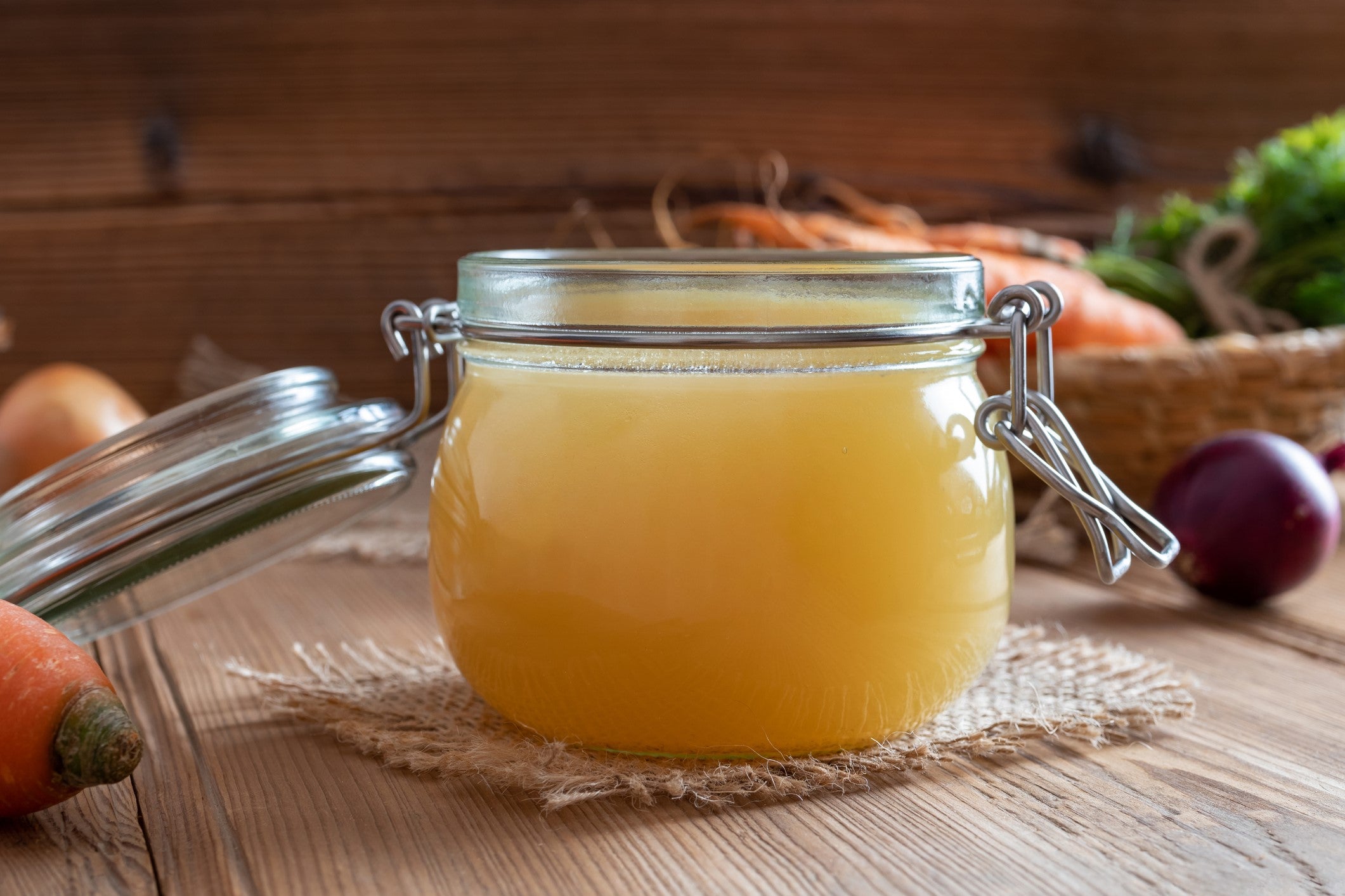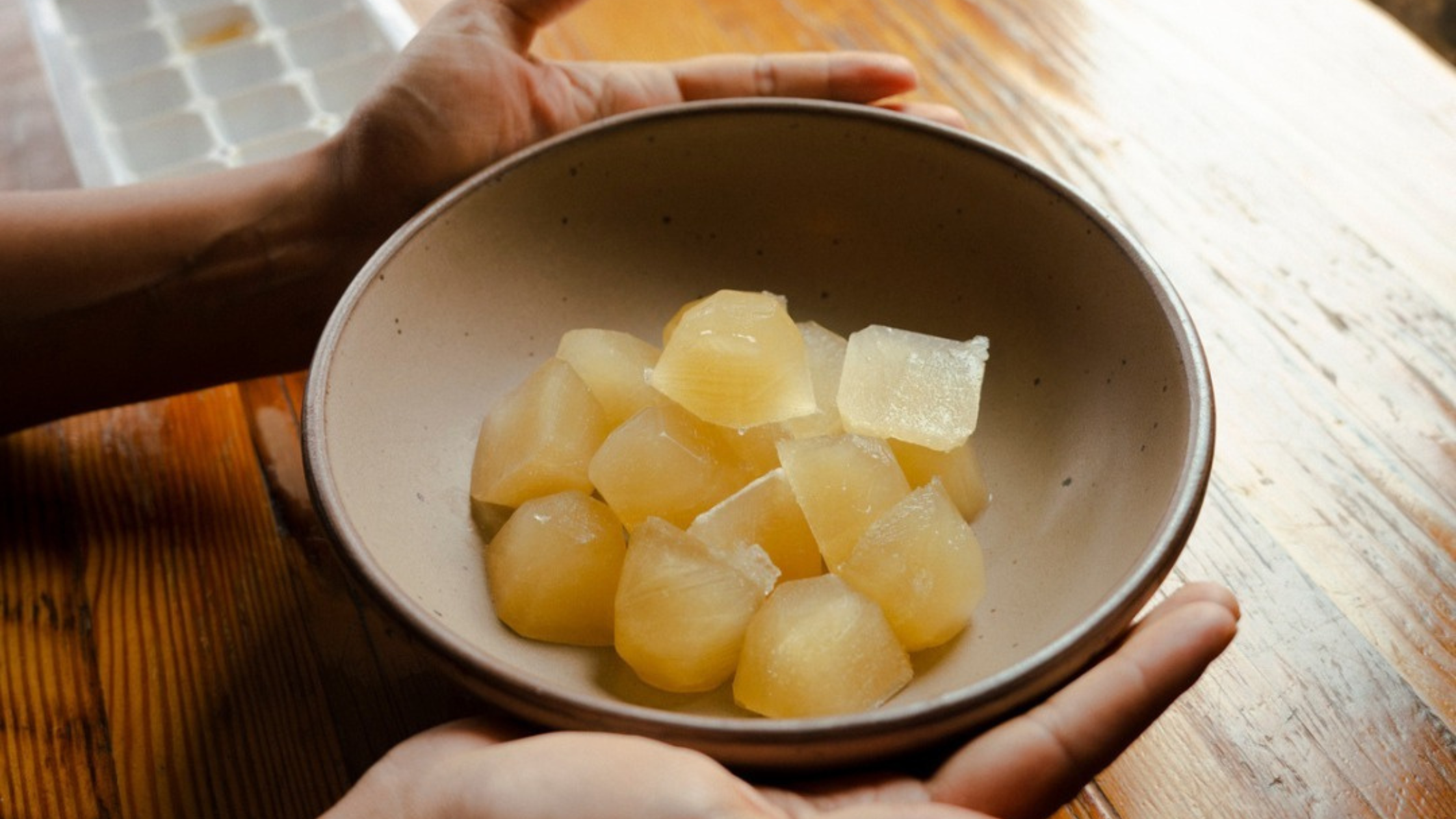The Relevance of Healthy Food: Why Bone Broth Is a Wonderful Selection for Infants
Bone broth stands out as a nutrient-dense option, providing important vitamins and minerals that sustain development and growth. What are the best means to introduce bone broth to your little one?
Nutritional Perks of Bone Broth for Infants
When you present bone broth to your baby's diet regimen, you're offering a nutrient-dense food that uses many health benefits. Loaded with essential minerals and vitamins, bone broth includes calcium, magnesium, and phosphorus, which sustain your child's growing bones. It's also abundant in collagen, aiding in the growth of healthy skin, joints, and connective tissues.
Additionally, bone broth is an exceptional source of amino acids like glycine and proline, which play a considerable role in overall growth and muscular tissue growth. These nutrients aid advertise a solid body immune system, establishing a strong structure for your infant's wellness.
In addition, bone broth is simple to absorb, making it a gentle choice for your kid. By integrating this wholesome food into their dishes, you're ensuring they receive crucial nutrients needed for their general well-being. Go in advance and make bone broth a staple in your baby's diet plan!
Exactly How Bone Broth Supports Digestion
Bone broth is loaded with important nutrients that can really profit your child's digestion. It promotes digestive tract health and assists with nutrient absorption, making it a wonderful enhancement to their diet plan. By including bone broth, you're setting the stage for a much healthier digestion system.
Nutrient-Rich Make-up
Among the most nutrient-rich foods you can introduce to your infant's diet regimen is bone broth, which is packed with essential minerals and amino acids that support healthy food digestion. Rich in collagen, bone broth assists enhance your infant's digestive tract cellular lining, making it easier for their body to soak up nutrients. It offers jelly, which assists in breaking down proteins, promoting smoother digestion. Additionally, the broth contains crucial electrolytes like potassium and magnesium, guaranteeing your baby stays hydrated and stabilized. The amino acids, such as glycine and proline, play an essential duty in fixing cells and sustaining general wellness (bone broth for infants). By integrating bone broth into your baby's dishes, you're providing them a wholesome food that supports their digestion system properly.
Promotes Gut Wellness
As you present bone broth right into your baby's diet plan, you'll locate it not just nurtures but additionally advertises gut wellness efficiently. Rich in gelatin, bone broth assists soothe the gastrointestinal tract, lowering swelling and supporting a healthy and balanced gut cellular lining. Furthermore, the amino acids discovered in bone broth, such as glycine, help in food digestion and can aid protect against typical stomach troubles.
Aids Nutrient Absorption
Introducing bone broth not only supports intestine health yet also plays a substantial duty in aiding vitamins and mineral absorption. When you give your baby bone broth, you're supplying an abundant resource of minerals and amino acids that improve their digestive processes. The gelatin in bone broth helps to soothe the digestive tract lining, improving its capacity to soak up necessary nutrients. This suggests that crucial minerals and vitamins from other foods are much more efficiently made use of by your child's growing body. Furthermore, bone broth includes collagen, which supports the growth of healthy and balanced cells and organs. By including this nutrient-dense liquid into your baby's diet plan, you're ensuring they get the optimum take advantage of their dishes, promoting general wellness and wellness.
Strengthening the Immune System With Bone Broth

In addition, bone broth has glycosaminoglycans, like glucosamine, that can enhance the body immune system's capacity to operate efficiently. This implies it not only helps in building defenses however additionally aids in recuperation from illnesses. By incorporating bone broth into your child's diet regimen, you're giving an all-natural source of sustenance that advertises wellness. So, take into consideration making bone broth a staple in your baby's meals, as it can play an important function in their immune health and development.
Easy Ways to Include Bone Broth Into Baby's Diet
Including bone broth right into your child's diet plan can be straightforward and gratifying. Start by mixing a small quantity of bone broth into pureed veggies or fruits. This adds flavor and nutrients without overwhelming your little one. You can additionally use bone broth as a base for soups or stews that you plan for the household, ensuring your infant additional hints gets a preference of scrumptious, healthier meals.
One more choice is to offer bone broth on its very own. Cozy it up and offer it in a sippy cup or tiny bowl-- it's a terrific means to introduce new tastes. If your child takes pleasure in grains, think about cooking rice or quinoa in bone broth rather than water for added sustenance. Lastly, you can ice up bone broth in ice cube trays, making it very easy to include a cube to various dishes whenever you desire. These methods will certainly help your baby profit of bone broth effortlessly!
Homemade vs. Store-Bought Bone Broth: What to Choose
Which is much better for your child: homemade or store-bought bone broth? Self-made bone broth supplies you complete control over the components. You can choose top notch bones, natural veggies, and herbs, guaranteeing your child gets one of the most nutrients without ingredients or chemicals. And also, making it at home can be a fulfilling experience, allowing you to bond with your baby while preparing wholesome food.
On the other hand, store-bought options are practical and save you time. They often contain chemicals and may not match the deepness of flavor and nutrition you get from homemade broth. If you go with store-bought, look for brands that are organic and devoid of ingredients.
Inevitably, if you have the moment and resources, homemade bone broth is the remarkable selection for your infant's health. If you're short in a timely manner, select a top quality store-bought alternative as a back-up.
Age-Appropriate Bone Broth Offering Pointers
As your infant grows, it is necessary to tailor bone broth offering suggestions to their developing stage. For infants around 6 months, start with a few spoonfuls of diluted bone broth. Mix it with water or breast milk to make it less complicated for them to digest. As they come to be accustomed to tastes, you can progressively present thicker broth by reducing the dilution.
By the time your little one is around a year old, take into consideration using bone broth as a standalone drink or blending it into soups and stews. Just make sure to maintain the broth reduced in salt.
Various Other Healthy Foods to Match With Bone Broth for Infants
When you're seeking to improve the dietary worth of bone broth for your baby, consider coupling it with nutrient-dense veggies like carrots and spinach. Whole grain choices, such as quinoa or wild rice, can additionally add see structure and fiber. Furthermore, incorporating healthy and balanced protein sources like shredded chicken or lentils will round out the meal perfectly.

Nutrient-Dense Vegetables
Nutrient-dense veggies are a great addition to bone broth for infants, boosting both flavor and nutrition. Including veggies like carrots, spinach, and pleasant potatoes can boost the vitamin and mineral content of your broth.
You can quickly blend these veggies into the broth or serve them as soft, cooked items together with it. This not only presents brand-new flavors yet likewise urges your youngster to delight in a range of nutrients. By combining nutrient-dense veggies with bone broth, you're laying the foundation for a healthy diet regimen right from the Homepage beginning.
Whole Grain Options

Healthy And Balanced Protein Resources
Bone broth pairs splendidly with various healthy protein sources, further boosting your baby's diet plan. Try adding soft, prepared lentils; they're nutrient-dense and jam-packed with healthy protein. You can likewise mix in shredded chicken or turkey, which are simple for your little one to absorb. If you're trying to find plant-based alternatives, consider mashed tofu or pureed chickpeas-- both supply excellent protein without overwhelming tastes. Eggs, when presented securely, are one more wonderful choice; they're flexible and packed with nutrients. Inevitably, mixing in some well-cooked quinoa can add a great structure and added healthy protein. By integrating these healthy protein sources with bone broth, you're providing your baby a well balanced, beneficial meal that supports their growth and development.
Frequently Asked Concerns
Can Bone Broth Cause Allergic Responses in Newborns?
Yes, bone broth can create allergies in babies, especially if they're sensitive to specific ingredients. Constantly consult your doctor prior to presenting new foods and monitor for any kind of indications of allergic reactions after feeding.
Exactly How Should Bone Broth Be Stored for Infants?
You should save bone broth in closed containers, either in the refrigerator for approximately a week or in the fridge freezer for up to 3 months. where to get bone broth. Always thaw it effectively before offering to your baby
Is It Safe to Give Bone Broth to Premature Babies?
It's necessary to consult your doctor prior to presenting bone broth to early infants. They'll assess your infant's specific health and wellness requirements and assure it's safe, considering their special dietary requirements and developing stage. Constantly prioritize experienced guidance.
What Are the Indicators of Intolerance to Bone Broth in Children?
When presenting bone broth, look for indicators like fussiness, breakout, diarrhea, or vomiting. If your infant reveals any of these reactions, it's finest to get in touch with a doctor prior to remaining to supply it.
Can Bone Broth Be Used as a Meal Substitute for Infants?
No, you should not use bone broth as a dish substitute for babies. It does not have essential nutrients needed for their growth. Instead, incorporate it right into their diet plan along with well balanced dishes for included nutrition and taste.